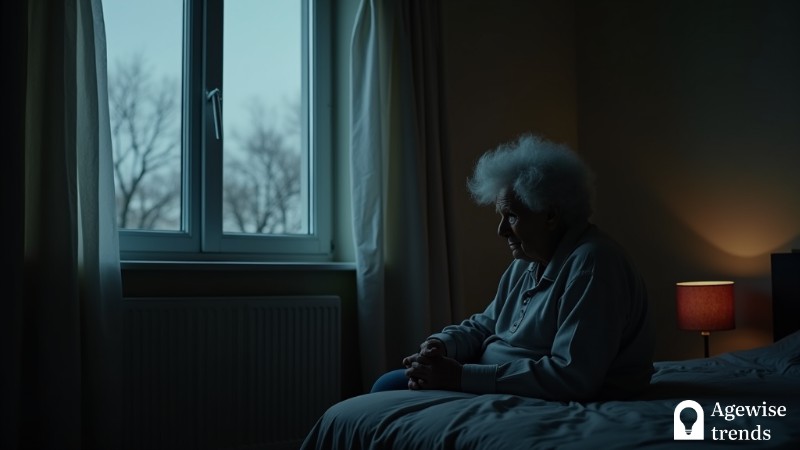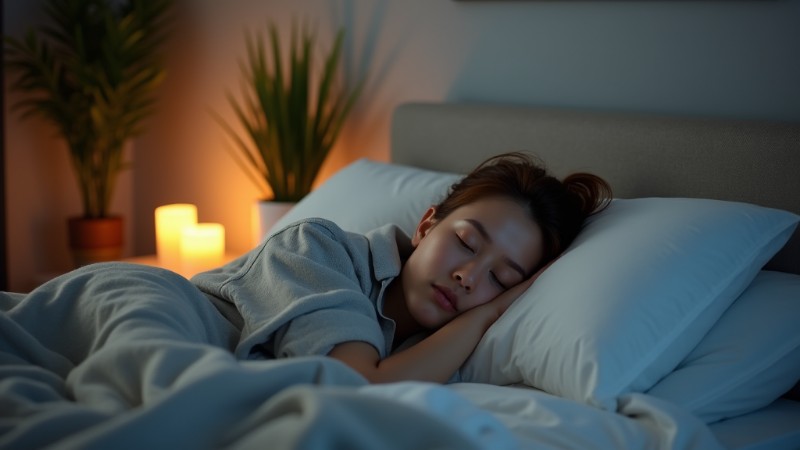Many assume that extreme fatigue naturally leads to deep sleep, but for some, the opposite occurs. They find themselves too exhausted to stay awake yet unable to sleep. This condition, known as overtiredness, is especially common among seniors due to age-related changes in sleep patterns, health conditions, and lifestyle factors. According to the 2020 Sleep in America Poll, 44% of U.S. adults report feeling tired at least two to four days a week, affecting their mood, productivity, and overall health.
Dr. Leah Kaylor, a clinical psychologist, describes overtiredness as a paradox where “the body is begging for sleep, but the mind won’t shut off.” When sleep is repeatedly delayed, the brain produces higher levels of cortisol and adrenaline—the same stress hormones that keep people alert. This surge in energy, often called a “second wind,” disrupts sleep cycles, making it harder to fall and stay asleep.
Key Takeaways
Overtiredness is a common issue among seniors due to age-related changes and health conditions, leading to difficulty falling asleep despite exhaustion.
- Seniors experience overtiredness because of disrupted sleep patterns, increased stress hormones, and various sleep disorders.
- Stress, anxiety, overstimulation from electronic devices, and certain medications contribute to poor sleep quality in older adults.
- Improving sleep hygiene through consistent schedules, relaxation techniques, and optimizing the sleep environment can help alleviate overtiredness.
Why overtiredness is more common in seniors
Sleep pressure builds up throughout the day due to adenosine, a chemical that promotes drowsiness. Dr. Hana Patel explains that ignoring it disrupts the body’s internal clock, making sleep difficult even when exhausted. Aging leads to lighter, more fragmented sleep, increasing vulnerability to disruptions. Sleep disorders like insomnia, sleep apnea, and restless leg syndrome also contribute to overtiredness.
Sleep disorders and aging: Conditions like sleep apnea, insomnia, and restless leg syndrome can make it difficult to get quality rest. Sleep and aging are also linked, as older adults often experience changes in sleep patterns, including lighter and more fragmented sleep, making overtiredness more common.
Stress, anxiety, and overstimulation: Heightened stress and anxiety levels increase cortisol production, keeping the brain in an active state. Engaging in mentally or physically stimulating activities before bed—such as watching intense TV shows or using electronic devices—can also make it harder to wind down.
Chronic health conditions and medications: Many seniors manage conditions such as arthritis, heart disease, or diabetes, which can interfere with sleep. Medications for these conditions may have stimulating effects or cause frequent nighttime awakenings.
Poor sleep hygiene and irregular sleep schedules: Inconsistent bedtimes, exposure to blue light from screens, and late caffeine consumption all contribute to poor sleep hygiene. Additionally, shift work or frequent travel can disrupt the circadian rhythm, making it harder to fall asleep.
Practical ways to improve sleep quality
While overtiredness can be frustrating, making small lifestyle adjustments can significantly improve sleep quality.
Develop a pre-bedtime routine with relaxation techniques: Winding down at least two hours before bed helps signal the body that it’s time to rest. Relaxation techniques such as deep breathing, meditation, and guided imagery can help reduce stress and prepare the mind for sleep. Taking a warm shower, listening to soft music, or journaling can also promote relaxation.
Maintain a consistent sleep schedule: Going to bed and waking up at the same time every day—even on weekends—strengthens the body’s internal clock. If sleep patterns have been disrupted, shifting bedtime by 20 minutes each day can help reset the schedule.
Limiting caffeine intake is also essential. Since caffeine has a half-life of about five hours, even a late-afternoon coffee can interfere with sleep. Dr. Kaylor notes that caffeine blocks the effects of adenosine, tricking the body into staying awake longer than it should.
Optimize your sleep environment: A dark, quiet, and cool bedroom promotes deeper sleep. Blackout curtains, white noise machines, and comfortable bedding can help minimize disturbances. Reducing screen time before bed is crucial since blue light from electronic devices suppresses melatonin production—the hormone responsible for sleep.
For those who struggle with anxiety, weighted blankets provide a calming effect, mimicking the sensation of a hug and encouraging relaxation.
Breaking the cycle of overtiredness
Overtiredness isn’t just a temporary inconvenience, it can lead to long-term health consequences, including weakened immune function, increased stress, and higher risks of chronic conditions. By recognizing the signs and making intentional changes, anyone can improve their sleep quality and overall well-being. Prioritizing consistent sleep habits, managing stress, and practicing good sleep hygiene are key steps in breaking the cycle and ensuring restorative rest.














